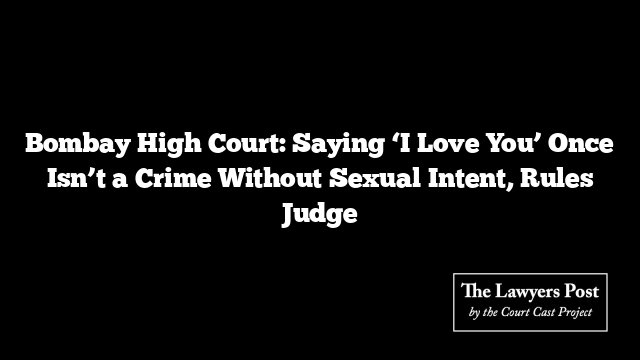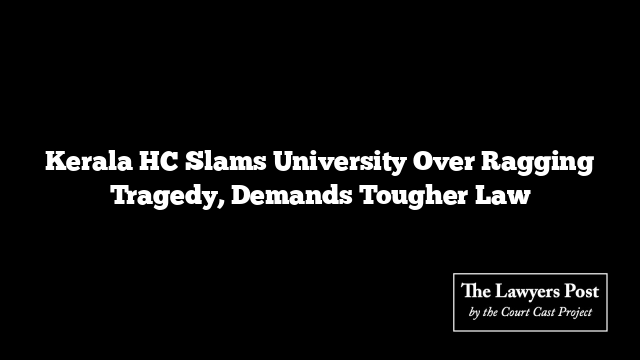In a case that cuts through the noise of assumptions, the Bombay High Court’s Nagpur bench has made it plain: a lone “I love you” doesn’t make someone a predator.
Justice Urmila Joshi-Phalke overturned the conviction of a man sentenced under the POCSO Act and IPC sections related to stalking and sexual harassment. The accused, a man from Khapa village near Nagpur, had been charged in 2015 after allegedly intercepting a 17-year-old girl on her way home from school, holding her hand, asking her name, and declaring his love.
The case had led to a 3-year prison sentence in 2017. But the High Court pulled apart the foundation of that verdict, brick by brick.
Saying “I love you,” the Court noted, cannot—on its own—be shoehorned into the legal definition of sexual intent. “There should be something more,” the judge wrote. “An act, a gesture, a look that carries a clear sexual undertone. Mere words, once spoken, don’t amount to intent.”
No repeated contact, no suggestive gestures, no pursuit. The evidence, the Court ruled, simply didn’t hold. The utterance wasn’t repeated. There was no follow-up, no established pattern of harassment. As for the POCSO charge, the Court made clear that sexual assault demands more than a vague expression of interest. Physical contact must be laced with unmistakable sexual motive—something the evidence failed to show.
While the prosecution proved the girl’s age through official birth records, it couldn’t convince the bench that what happened crossed the legal threshold for sexual assault or stalking. The supposed incident, the Court said, stood isolated—absent of repetition or any sexually charged body language.
As a result, the man walked free. His words, though bold, were not backed by action that law considers criminal.
This case, while rooted in the specifics of one October afternoon, raises wider questions: When does a line get crossed? What separates clumsy infatuation from criminal behavior? The High Court’s answer: without intent, without repetition, without more—it doesn’t.





